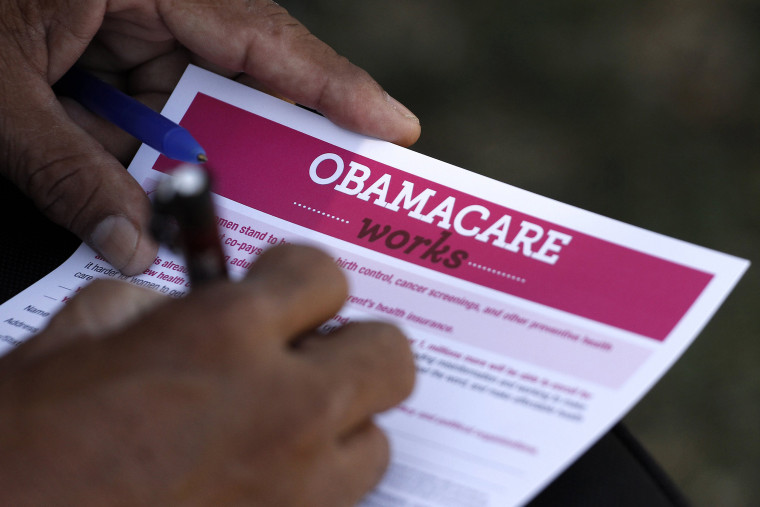About 18 million people would lose or drop their health insurance in the first year after Obamacare is repealed, the Congressional Budget Office reported Tuesday.
The nonpartisan federal agency also found that health insurance premiums would spike another 20 to 25 percent, according to the new report. Within 10 years, 32 million more people would be without health insurance, the CBO projects.
Without a replacement, health care costs overall would continue to rise every year, as would the number of people going without health insurance. Premiums would continue to go up, as well.
The report’s projections are based on the repeal law passed in the House of Representatives last year. That bill would use the same process that Congress is working on now to repeal the 2010 Affordable Care Act — a budget-based process called reconciliation.
Related: On Brink of Repeal, Obamacare has Never Been More Popular
It assumes some of the more popular provisions of Obamacare would stay in place, such as the measures that stop health insurance companies from capping coverage, for instance, and the rule that allows adult children to stay on their parents’ policies until age 26.
“Premiums in the non-group market would be roughly 20 percent to 25 percent higher than under current law."
It looks at what would happen with repeal of the mandate — the rule that everyone get health insurance somewhere — along with a repeal of the federal support for expanding Medicaid to more people.
While the mandate is unpopular, insurance companies insisted that it be part of the ACA. They argue, and health policy experts agree, that without some kind of requirement, many people would wait until they were sick to buy health insurance.
Related: Five Things You May Not Know About Obamacare
With no mandate, many insurance companies would just stop offering policies to individuals, the CBO projects. “As a consequence, roughly 10 percent of the population would be living in an area that had no insurer participating in the non-group market,” the CBO said.
And the rest would raise premiums.
“Premiums in the non-group market would be roughly 20 percent to 25 percent higher than under current law,” the CBO reported.
Related: Obamacare Repeal Would Raise Deficit, CBO Finds
Most Americans get health insurance through an employer and the report doesn’t address them, although a full repeal of the Affordable Care Act would have some effect on that insurance.
The main focus of the Affordable Care Act was to get health insurance to the millions of Americans who didn’t have it by creating a new non-group market and by expanding Medicaid. Because health insurance is regulated by states, each state had to have its own individual mix of insurance companies and policies on offer.
“The number of people who are uninsured would increase by 18 million in the first new plan year following enactment of the bill."
To make the policies more affordable, the law offered generous federal subsidies to help people pay their premiums. Repeal would take away those subsidies and cause the market to collapse, the report says.
Related: Tough Choices to Make With Obamacare Repeal
And the federal government pays most of the cost of expanding Medicaid, which is a joint state-federal health insurance plan for people with low incomes and the disabled. Repeal would take away those federal dollars.
“The number of people who are uninsured would increase by 18 million in the first new plan year following enactment of the bill,” the report said.
“Later, after the elimination of the ACA’s expansion of Medicaid eligibility and of subsidies for insurance purchased through the ACA marketplaces, that number would increase to 27 million, and then to 32 million in 2026,” the CBO continued.
More than 20 million people who were uninsured received health insurance through the ACA’s provisions. While premiums on the Obamacare exchanges did go up by an average of 22 percent this year, a recent report found that was an expected adjustment because the premiums were artificially low the year before.
It's not entirely clear how repeal will proceed. Neither President-elect Trump nor the GOP leaders in Congress have released details about how they plan to move forward, or what might replace the 2010 law.

